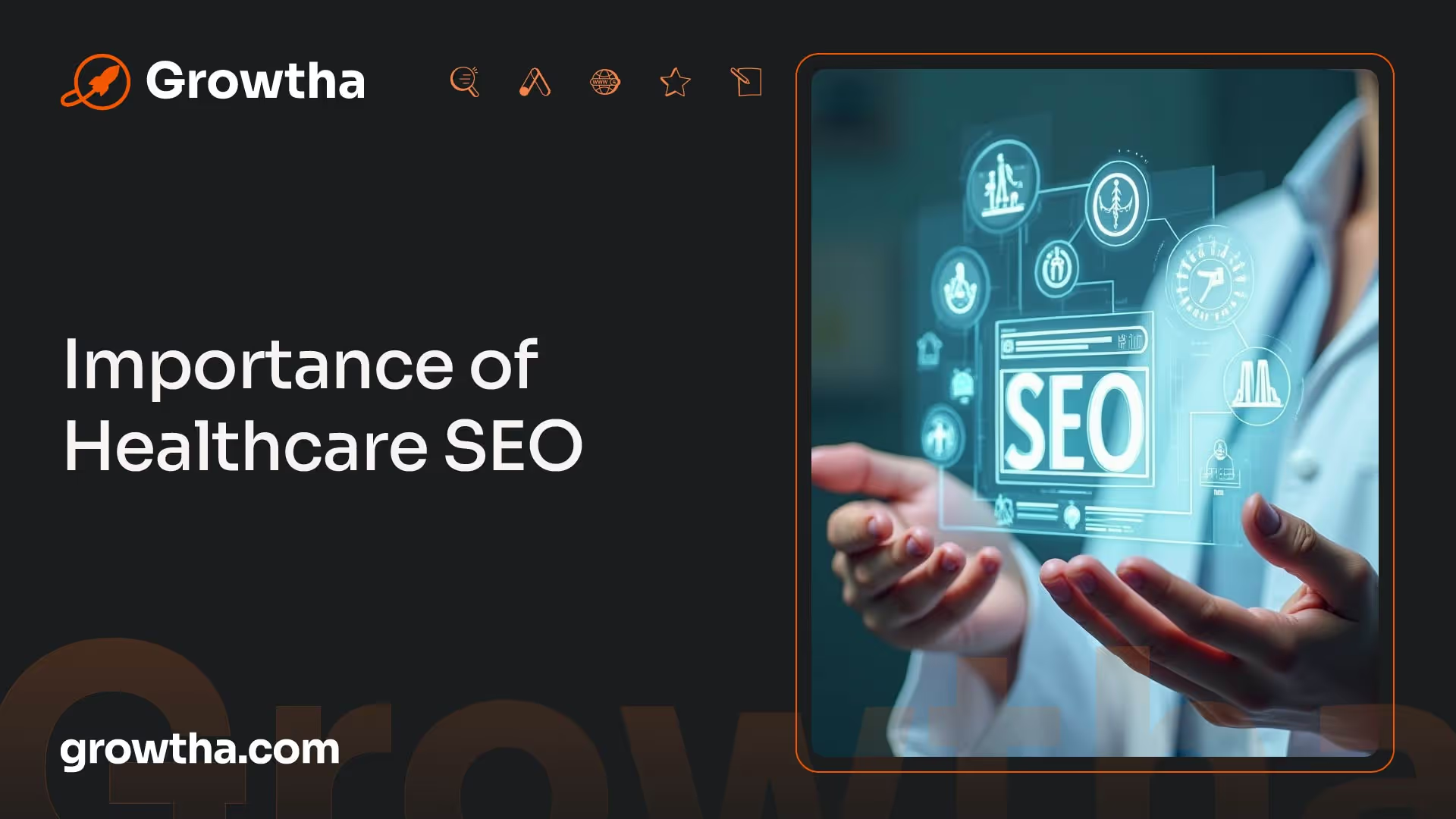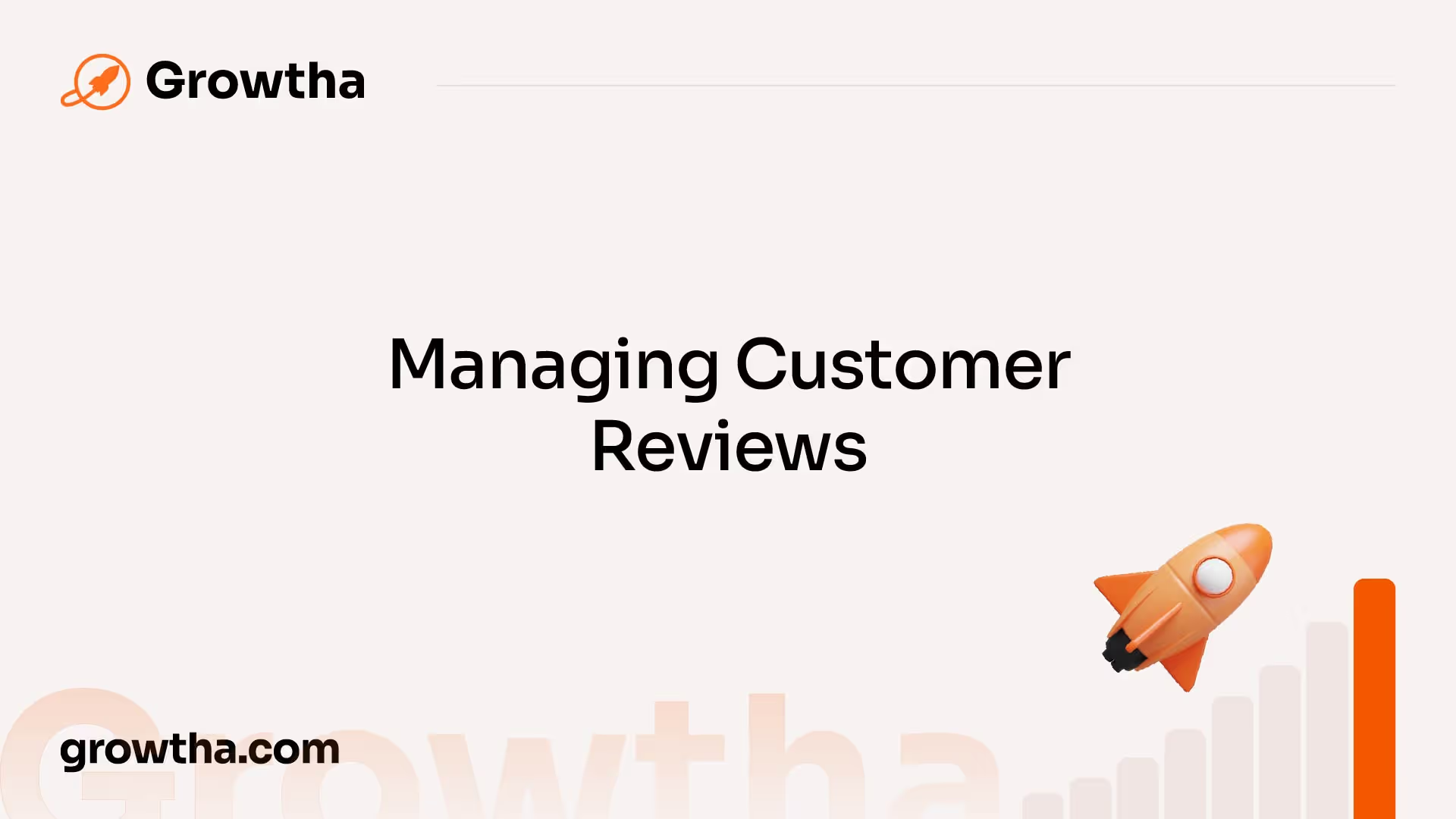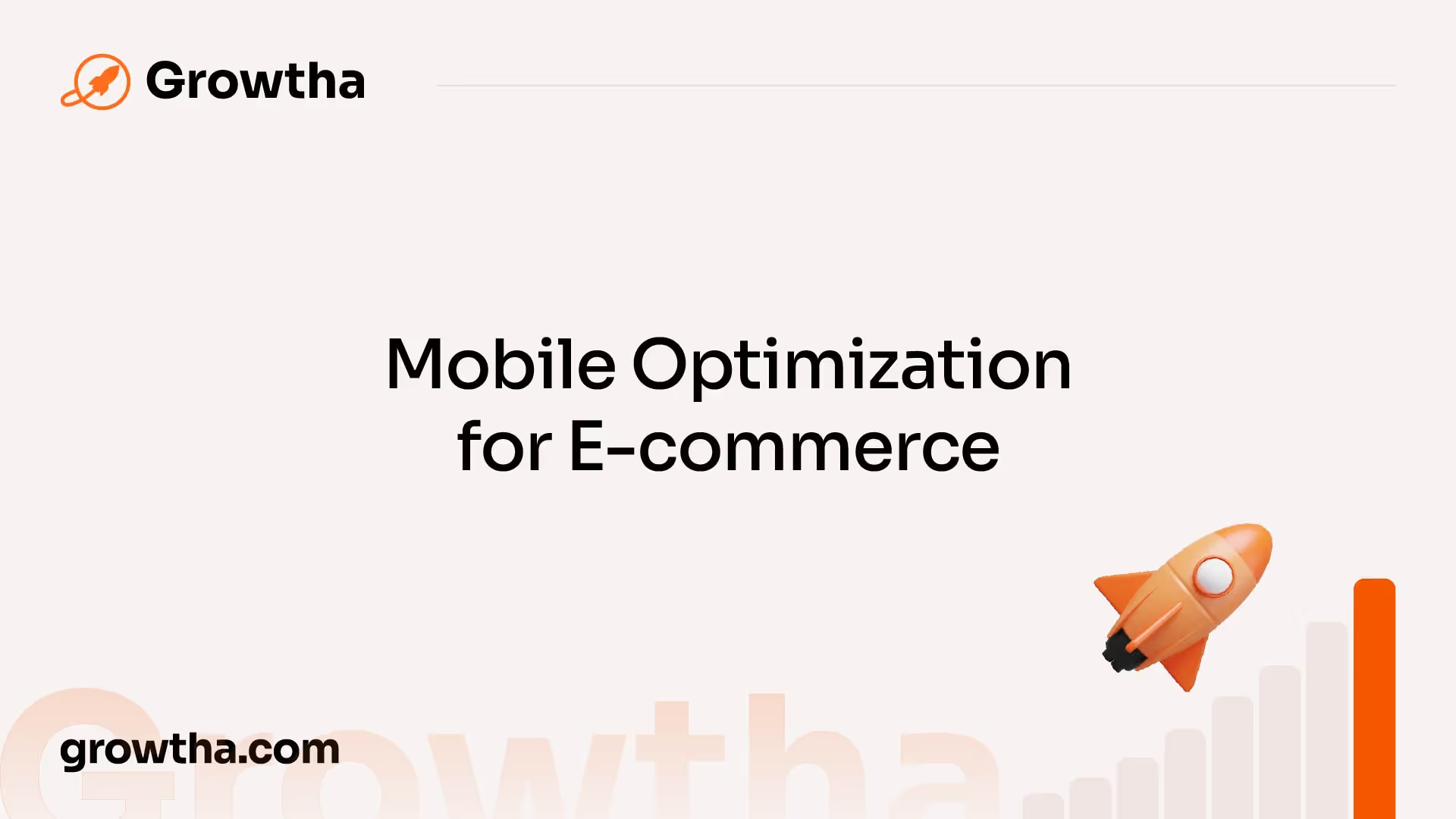Online Healthcare Market: SEO Tactics for E-commerce
Healthcare SEO plays a vital role in driving organic traffic to e-commerce websites and can lead to better conversion rates if done properly.


Online Healthcare Market: SEO Tactics for E-commerce
Importance of Healthcare SEO

In the competitive world of e-commerce, implementing effective SEO strategies is crucial for healthcare businesses to stand out and thrive. Healthcare SEO plays a vital role in driving organic traffic to e-commerce websites and can lead to better conversion rates if done properly. Let's explore the benefits of SEO for e-commerce and the challenges that healthcare businesses may encounter in the process.
Benefits of SEO for E-commerce
Implementing SEO techniques for healthcare e-commerce websites offers several significant benefits. Here are some key advantages:
- Increased visibility: By optimizing your website for search engines, you can improve your online visibility and increase your chances of appearing in relevant search results. This heightened visibility brings your healthcare products and services to the attention of potential customers.
- Targeted traffic: SEO helps attract highly targeted traffic to your e-commerce site. By focusing on relevant keywords and optimizing your content, you can attract users who are actively searching for healthcare products or services that you offer. This targeted traffic is more likely to convert into customers.
- Improved user experience: SEO practices, such as optimizing website loading speed and implementing mobile optimization, enhance the overall user experience. A fast-loading website and a mobile-friendly design provide a seamless experience for visitors, leading to increased engagement and lower bounce rates [2].
- Authority and credibility: Implementing SEO best practices helps establish your healthcare e-commerce website as a trusted source of information. By consistently providing valuable and relevant content, you can earn the trust and loyalty of your target audience.
Challenges in SEO for E-commerce

While healthcare SEO brings numerous benefits, it also presents unique challenges for e-commerce businesses. Some of the common challenges include:
- Complex website structure: E-commerce websites often have complex structures with multiple product pages, categories, and filters. This complexity can make it challenging for search engines to crawl and index all the relevant pages. It is crucial to optimize the website architecture and ensure that search engines can easily navigate and understand the site's structure.
- Product description optimization: Writing detailed and optimized product descriptions can be time-consuming and challenging for e-commerce businesses. However, well-crafted descriptions are essential for search engine optimization. They help search engines understand the context and relevance of your products, improving your chances of ranking higher in search results.
- Website loading speed: Slow-loading websites result in higher bounce rates and lower conversions. Ensuring that your healthcare e-commerce site loads quickly is crucial for both user experience and SEO. Optimizing images, minimizing code, and using caching techniques are some strategies to improve website loading speed [1].
- Managing customer reviews: Online reviews play a significant role in consumer decision-making. Healthcare e-commerce businesses need to actively manage and respond to customer reviews. Positive reviews can improve search engine rankings and build trust, while negative reviews need to be addressed promptly to mitigate their impact on your online reputation [1].
By understanding the benefits of healthcare SEO and being aware of the challenges, e-commerce businesses in the healthcare industry can develop effective strategies to enhance their online presence, attract targeted traffic, and ultimately drive conversions.
SEO Strategies for E-commerce

To dominate the online healthcare market, implementing effective SEO strategies is crucial for e-commerce websites. By optimizing various aspects of the website, you can improve your search engine rankings and attract organic traffic. In this section, we will explore three key SEO strategies for healthcare e-commerce: product description optimization, website loading speed, and managing customer reviews.
Product Description Optimization
Writing detailed and informative product descriptions is essential for search engine optimization [1]. When creating product descriptions, it's important to include relevant keywords that potential customers might use when searching for products. Incorporate these keywords naturally into the description, ensuring that the content remains engaging and informative.
Additionally, provide comprehensive information about the product, including its features, specifications, benefits, and any unique selling points. This not only helps search engines understand the content but also provides valuable information to potential customers, improving their overall shopping experience.
Website Loading Speed
Website loading speed is a critical factor in SEO for e-commerce sites [1]. A slow-loading website can lead to higher bounce rates and lower conversions. To optimize website loading speed, consider the following:
- Compress and optimize images to reduce file sizes without compromising quality.
- Minify CSS, JavaScript, and HTML files to reduce their sizes and improve load times.
- Utilize browser caching to store static files, reducing the need for repeated downloads.
- Use a content delivery network (CDN) to distribute website content across multiple servers, improving accessibility and load times for users in different locations.
By implementing these strategies, you can enhance the user experience, encourage visitors to spend more time on your website, and increase the chances of conversions.
Managing Customer Reviews

Customer reviews are a powerful tool for e-commerce SEO. Positive reviews can improve search engine rankings and attract potential customers, while negative reviews can have the opposite effect. Managing and responding to customer reviews is crucial to maintaining a positive online reputation and boosting SEO [1].
Encourage customers to leave reviews by sending follow-up emails or offering incentives. Respond promptly to both positive and negative reviews, addressing any concerns and showing your commitment to customer satisfaction. This demonstrates transparency and builds trust with potential customers.
Regularly monitoring and managing customer reviews not only improves your online reputation but also provides valuable feedback for product improvements and customer service enhancements.
Implementing these SEO strategies for healthcare e-commerce can help you improve your website's visibility, attract organic traffic, and increase conversions. By optimizing product descriptions, ensuring fast website loading speed, and effectively managing customer reviews, you can gain a competitive edge in the online healthcare market.
Mobile Optimization for E-commerce

In today's digital landscape, mobile optimization plays a crucial role in the success of e-commerce websites. With the increasing number of users accessing the internet through their mobile devices, it is essential for healthcare businesses to prioritize mobile-friendly websites. This section will explore the importance of mobile-friendly websites, their impact on user experience, and their relevance to local search results.
Importance of Mobile-Friendly Websites
Google's search algorithms have prioritized mobile-friendly websites, making it critical for e-commerce businesses to optimize their websites for mobile devices. When a website is not mobile-friendly, it may not perform well in mobile search results, which can significantly impact its visibility in search engine rankings.
Impact on User Experience
Mobile-friendly websites provide a better user experience on smaller screens. With a responsive design and optimized layout, these websites adapt to different screen sizes, ensuring that users can navigate and interact with the site effortlessly. Positive user experiences lead to lower bounce rates, longer dwell times, and increased engagement, all of which are positive signals for search engines [2].
Local Search Results
Mobile searches are often location-specific, with users seeking information about healthcare services in their vicinity. A mobile-friendly website is more likely to appear in local search results and map listings. By optimizing their websites for mobile, e-commerce businesses can increase their visibility to potential customers in their target area [2].
To fully optimize a website for mobile, it is crucial to consider factors beyond responsive design. Page speed, for example, is a key ranking factor for both mobile and desktop search. Mobile optimization often involves optimizing page speed to ensure faster loading on mobile devices, providing a seamless and efficient user experience.
By prioritizing mobile optimization, healthcare e-commerce businesses can improve their search engine rankings, increase their visibility, and provide a user-friendly experience for mobile users. It's important to keep in mind that as Google's algorithms continue to evolve, mobile optimization will remain a critical factor in dominating the online healthcare market.
Healthcare SEO Best Practices
To effectively dominate the online healthcare market, it's crucial to implement SEO strategies that align with best practices in the industry. This section will explore three key aspects of healthcare SEO: understanding Google's E-A-T guidelines, technical SEO for health websites, and SEO priorities in the healthcare field.
Understanding Google's E-A-T Guidelines
Google's E-A-T guidelines, which stand for expertise, authoritativeness, and trustworthiness, are essential for healthcare websites to rank well in search engine results. The health industry falls under the "YMYL" (Your Money Your Life) category, where accuracy and reliability are of utmost importance. To meet these guidelines, healthcare websites must focus on:
- Demonstrating expertise: Showcase the qualifications and experience of healthcare professionals associated with the website. This can be done through author biographies, credentials, and affiliations.
- Establishing authority: Provide reputable sources and references for medical information. Cite scientific studies, medical journals, and trusted organizations to support claims made on the website.
- Building trustworthiness: Ensure the website is transparent and provides accurate, up-to-date information. Display privacy policies, terms of service, and contact information prominently to give users confidence in the site's credibility.
By adhering to these E-A-T guidelines, healthcare websites can enhance their reputation and credibility in the eyes of both users and search engines, ultimately improving their visibility in search results.
Technical SEO for Health Websites
Technical SEO plays a crucial role in optimizing health websites for search engines. It involves optimizing the website's backend infrastructure to improve its performance, crawlability, and user experience [3]. Some key technical SEO practices for health websites include:
- Optimizing website speed: Ensure fast loading times to enhance user experience and reduce bounce rates. Compress images, minify code, and leverage browser caching to improve page load speed.
- Implementing schema markup: Use structured data markup to provide search engines with additional information about the website's content. This can enhance the visibility and appearance of search engine snippets.
- Optimizing site structure and navigation: Create a logical and user-friendly website structure with clear navigation menus and internal linking. This helps search engines crawl and index the website more effectively.
By focusing on technical SEO, healthcare websites can improve their overall performance, user experience, and search engine rankings.
SEO Priorities in Healthcare
SEO has become increasingly important for healthcare companies in recent years, and the COVID-19 pandemic has further accelerated this trend. However, understanding SEO priorities in the healthcare industry can be challenging, as Google does not disclose specific algorithm details and competitors are also investing in SEO.
To establish SEO priorities in the healthcare field, it's important to:
- Conduct thorough keyword research: Identify relevant keywords and phrases that your target audience is searching for. Focus on both informational and commercial keywords to capture users at various stages of their healthcare journey.
- Create high-quality, authoritative content: Develop comprehensive, well-researched content that addresses the needs and concerns of your target audience. Ensure the content aligns with Google's E-A-T guidelines and provides value to users.
- Build quality backlinks: Earn backlinks from reputable and relevant websites in the healthcare industry. This can help increase your website's authority and improve search engine rankings.
By prioritizing these key aspects of SEO, healthcare companies can position themselves effectively in the online market and attract organic traffic from users seeking reliable healthcare information and services.
Implementing these healthcare SEO best practices will not only enhance the visibility of healthcare websites but also establish trust with users and search engines alike. By focusing on expertise, technical optimization, and understanding SEO priorities, healthcare companies can effectively dominate the online healthcare market and reach their target audience.
Link Building Strategies
Link building is an essential component of healthcare SEO for e-commerce. It involves acquiring backlinks from other websites to increase the visibility and authority of an e-commerce healthcare website. In this section, we will explore the importance of backlinks, the quality versus quantity debate, and two effective link building strategies: guest blogging and influencer collaboration.
Importance of Backlinks
Backlinks play a crucial role in SEO, as they indicate relevance and popularity to search engines. They serve as votes of confidence from other websites, signaling to search engines that the linked website is trustworthy and valuable. Backlinks not only contribute to higher search rankings but also expose the website to a wider audience, potentially driving more traffic and potential customers [5].
Quality vs. Quantity of Backlinks
When it comes to backlinks, quality outweighs quantity. While having a large number of backlinks may seem beneficial, a single high-quality backlink from a reputable and relevant website can be more valuable than numerous low-quality backlinks. Search engines prioritize the quality and relevance of backlinks, considering them as votes of confidence from authoritative sources. It is important to focus on acquiring backlinks from reputable websites within the healthcare industry to enhance the credibility and authority of an e-commerce healthcare website.
Guest Blogging and Influencer Collaboration
Two effective strategies for building backlinks are guest blogging and influencer collaboration. Guest blogging involves writing and publishing articles on other websites within the healthcare industry. By providing valuable content to these websites, e-commerce healthcare businesses can establish credibility, showcase expertise, and gain exposure to a larger audience. In return, they receive a backlink to their own website, driving traffic and improving search rankings.
Another strategy is collaborating with influencers in the healthcare industry. E-commerce businesses can offer their products for review or sponsor content on influencer platforms in exchange for a backlink to their website. This not only helps in acquiring high-quality backlinks but also exposes the e-commerce healthcare brand to the influencer's engaged audience, potentially driving more traffic and conversions.
To identify potential linking opportunities, conducting competitor research is crucial. Tools like Ahrefs or SEMrush can help analyze competitor backlink profiles and identify websites that link to competitors but not to the business's site. This provides a list of potential outreach targets, allowing e-commerce healthcare businesses to secure valuable backlinks and enhance their online visibility.
Implementing effective link building strategies like guest blogging and influencer collaboration can significantly boost the SEO efforts of e-commerce healthcare websites. By acquiring high-quality backlinks from reputable sources, these websites can enhance their authority, improve search rankings, and ultimately dominate the online healthcare market.
Content Marketing in Healthcare SEO
Content marketing plays a crucial role in healthcare SEO, providing a means to engage with the target audience, establish credibility, and improve online visibility. By creating and distributing valuable content, healthcare businesses can attract and retain customers, generate leads, and build a professional reputation.
Role of Content Marketing
Content marketing serves as the foundation of search engine optimization (SEO) in the healthcare industry. It plays a vital role in enhancing the online visibility of healthcare businesses and making it easier for prospective clients, customers, or investors to find them [7]. Neglecting content marketing can result in decreased website visibility and hinder overall business performance.
By developing a comprehensive content marketing strategy, healthcare businesses can effectively communicate with their target audience, provide informative content, and establish themselves as a trusted source of information. Content marketing helps humanize the brand, open dialogues with the audience, and build trust and loyalty.
Benefits of Healthcare Content
Healthcare content marketing offers numerous benefits to businesses in the industry. Some key advantages include:
- Engaging the target audience: Content marketing provides an opportunity to create informative and engaging content that resonates with the target audience. By addressing their pain points, answering their questions, and providing valuable insights, healthcare businesses can establish a strong connection with their audience.
- Generating leads and increasing revenue: Effective content marketing can attract new customers, generate leads, and ultimately increase business revenue. By providing valuable content, healthcare businesses can position themselves as industry experts and increase their chances of converting leads into paying customers.
- Improving brand awareness: Consistent and valuable content helps improve brand awareness. When healthcare businesses consistently deliver high-quality content, they increase their visibility and recognition among their target audience. This, in turn, can lead to increased brand awareness and a stronger brand presence.
- Building a professional reputation: Content marketing allows healthcare businesses to showcase their expertise and knowledge. By providing accurate information supported by credible sources, businesses can establish themselves as trusted authorities in their respective fields.
- Opportunities for customer connection: Content marketing opens up opportunities for healthcare businesses to connect with their customers. Through comments, discussions, and social media interactions, businesses can engage in conversations with their audience, understand their needs, and build stronger relationships.
Diverse Content Formats
To effectively communicate with the target audience, healthcare businesses should utilize a diverse range of content formats. Some popular formats include:
- Blog posts: Informative articles that provide valuable insights and address specific healthcare topics.
- Videos: Engaging visual content that can educate, demonstrate, or entertain the audience.
- Quizzes: Interactive content that allows users to test their knowledge or assess their health-related traits.
- Infographics: Visual representations of data or information that simplify complex concepts.
- Podcasts: Audio content that offers in-depth discussions, interviews, or educational content.
- Case studies: Detailed analysis of real-life examples that showcase the effectiveness of healthcare products or services.
- Webinars: Online seminars or presentations that educate and engage the audience.
- White papers: In-depth reports that provide comprehensive information on specific healthcare topics.
By employing a diverse range of content formats, healthcare businesses can effectively communicate with their audience and deliver valuable information through engaging and interactive means.
In conclusion, content marketing is an essential component of healthcare SEO. By creating valuable content, healthcare businesses can engage their target audience, improve online visibility, and establish themselves as trusted authorities. By utilizing a diverse range of content formats, businesses can effectively communicate with their audience and provide valuable information in engaging and interactive ways.
References
[1]: https://www.ayokay.com/overcoming-5-of-the-major-seo-challenges-for-e-commerce-sites/
[2]: https://www.linkedin.com/pulse/how-does-mobile-optimization-impact-seo-what-steps-can-sekhati-jqsnc
[3]: https://www.lumar.io/blog/best-practice/seo-strategies-for-healthcare-and-wellness-websites/
[4]: https://blogs.perficient.com/2020/08/20/the-top-seo-challenges-in-healthcare/
[5]: https://www.whatconverts.com/blog/guest-post-backlink-building/
[6]: https://markitors.com/link-building-for-ecommerce-top-tips/
[7]: https://onyxhealth.com/content-marketing/
[8]: https://www.linkedin.com/pulse/healthcare-content-marketing-why-how-when-testimony-olajire/







